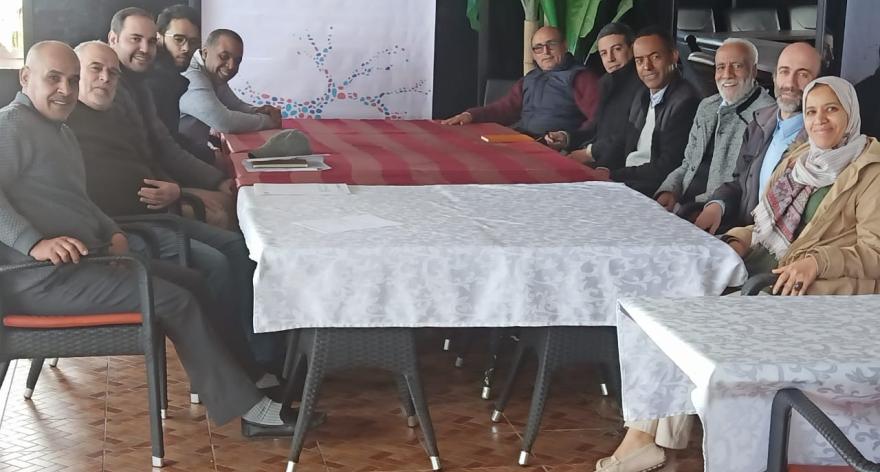
The Moroccan ALF Network is a group of more than 182 institutions, organisations and universities. With its diversity, its potential and its geographical location spread across nearly 40 Moroccan cities, the Moroccan Network is one of the most dynamic networks in the EuroMed space interacting with most of the 41 networks in terms of management of joint inter-network activities and actions.
Our network was the first to innovate the concept of inter-network activities with the Spanish network since 2010, with nine networks in the action of Taroudent in 2014 and with 25 networks as part of the "Box of cultures" project in 2015, the network also succeeded in mobilising more than 11,000 young people as part of the “Young Moroccan Voices” programme.
Through its expertise and its action plan, the Moroccan network has had a great impact on CSOs and on the Moroccan community in general since its creation. This has enabled it to mobilise a large number of leading organisations on the national scene. For this reason, its vision intends to promote greater involvement of members and the encouragement of a desire to value experiences with a view to continuing to play its role perfectly at national and Euro-Mediterranean levels.
Its strong point is in the cultural and thematic diversity of its members; it has skills and expertise in intercultural education and citizenship education, sustainable and territorial development, democracy and public policies, women, gender and equality, volunteering and community action, culture, art and creativity, media and public opinion and scientific research.
BP: 6050 safi principal morocco
46000 Safi
Morocco
Since 2005, three HoNs have chaired the Moroccan ALF Network: The Group for Studies and Research on the Mediterranean (2005-2011), the International Center for Cooperation South North – CoopSudNord (2011-2017), and the Association Agir Ensemble Morocco (from January 2018 till now).
Morocco is at once Amazigh, Jewish, Mediterranean, Arab-Muslim, African Negro and Morisco Andalusian. He speaks various languages and dialects: Amazigh with these three variants (Tarifit, Tamazight and Tachelhit), Arabic shared between Darija and Hassani, French and Spanish (languages of the settler) and English (language of science and international trade ).
The Moroccan ALF Network covering nearly forty Moroccan cities and territories, crossing all the diversities of the national cultural mosaic, has every legitimacy today to confront young people with their identity which is both united and plural and reinforce them in their values of openness and Euro-Mediterranean anchoring.
With the help of time, the Moroccan tends to believe that his diversity is consumed. This seems true today, especially after the adoption of the new constitution of 2011 which established Amazigh as an official language, guarantees everyone the free exercise of worship, recognizes the contribution to its identity represented by its Arab-Islamic components. , Amazigh and Saharo-Hassanian, and the enrichment by its African, Andalusian, Hebrew and Mediterranean tributaries, demonstrated the attachment to the values of openness, moderation, tolerance and dialogue for mutual understanding between all cultures and civilizations of the world and granted to international conventions duly ratified by Morocco, primacy over the internal law of the country.




